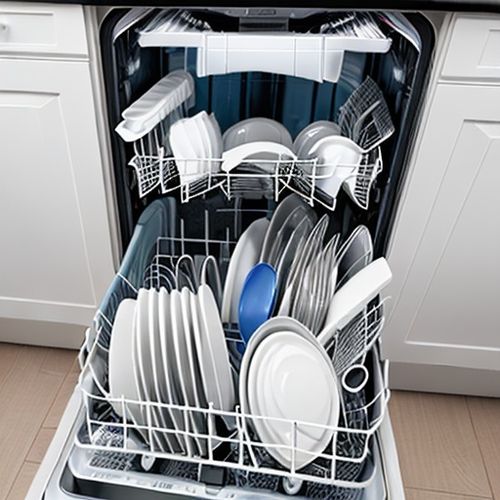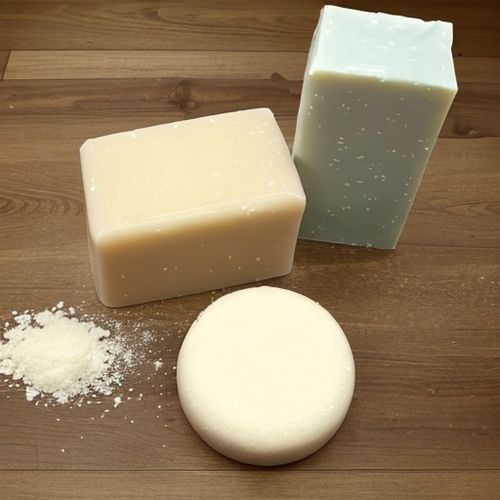Ah, the humble dishwasher—a stalwart companion in the daily battle against dirty dishes. You load it up with your plates, glasses, and silverware, press a few buttons, and voilà! Clean dishes, right? But what happens when you open that door and instead of the fresh scent of cleanliness, you're greeted with a musty, rotten odor that makes you want to hold your breath? That, my friends, is a clear sign that your dishwasher needs some tender loving care. Just like your microwave, coffee maker, washing machine, and dryer, your dishwasher craves regular maintenance to keep it smelling fresh and running efficiently. Let's dive into the nitty-gritty of how to clean your dishwasher and banish those unpleasant odors once and for all.
The Importance of a Clean Dishwasher
Before we get into the how-to, let's talk about why a clean dishwasher is so crucial. Your dishwasher is a marvel of modern technology, designed to make your life easier by cleaning your dishes quickly and effectively. But over time, food particles, grease, and grime can build up in the machine, leading to unpleasant odors, reduced cleaning efficiency, and even potential damage to the appliance. A dirty dishwasher not only smells bad but can also leave your dishes less than pristine, defeating the whole purpose of having a dishwasher in the first place. Regular maintenance not only keeps your dishwasher smelling fresh but also prolongs its lifespan and ensures that your dishes come out sparkling clean every time.
Step-by-Step Guide to Cleaning Your Dishwasher
Step 1: Gather Your Supplies
Before you begin, make sure you have everything you need. You'll need:
- A screwdriver (if necessary)
- A brush (an old toothbrush works well)
- Dish soap
- White vinegar
- A clean cloth or sponge
- A dishwasher-safe container (like a glass or bowl)
Having these items on hand will make the cleaning process smoother and more efficient.
Step 2: Empty the Dishwasher
This might seem obvious, but it's essential to start with an empty dishwasher. Remove all the dishes, cutlery, and cups. If you can, take out the bottom rack as well. This will give you better access to the interior of the machine and make the cleaning process easier.
Step 3: Locate and Remove the Filter
The filter is usually located at the bottom of the dishwasher, beneath the spray arm. It's designed to catch food particles and prevent them from clogging the drain. To remove the filter, gently unscrew it or pull it out, depending on your model. If you're unsure how to do this, consult your appliance's manual. If you don't have the manual, you can usually find it online by searching for your dishwasher's make and model.
Step 4: Clean the Filter
The filter is often the culprit behind unpleasant odors in the dishwasher. To clean it, start by soaking it in hot, soapy water. This will help to loosen any food particles and grime. After soaking for a few minutes, use a brush to scrub the filter thoroughly. Pay special attention to any small crevices or holes where food particles might be trapped. Rinse the filter under running water until it's completely clean and free of debris. If the filter is particularly dirty, you might need to repeat the process.
Step 5: Wipe Down the Seals and Interior
While the filter is soaking, use a damp cloth or sponge to wipe down the dishwasher's gasket (the rubber seal around the door) and the interior walls. These areas can accumulate food particles, grease, and grime over time, leading to unpleasant odors. Be sure to clean around the spray arms and any other nooks and crannies where dirt might hide. If you notice any mold or mildew, you may need to use a mild bleach solution or a commercial cleaner to disinfect the area.
Step 6: Run a Hot Water Cycle with White Vinegar
Once the filter is clean and the interior is wiped down, it's time to give your dishwasher a thorough cleaning cycle. Place the clean filter back in its proper position and roll the bottom rack back into the dishwasher. Next, pour a cup of white vinegar into a dishwasher-safe container and place it on the top or bottom rack. Run a hot water cycle, making sure to select the hottest setting available. The vinegar will help to dissolve any remaining grime and eliminate odors, leaving your dishwasher smelling fresh and clean.
Step 7: Optional Deep Clean with Affresh Tablets
For an even deeper clean, consider using Affresh Dishwasher Cleaner Tablets. These tablets are specifically designed to remove limescale and mineral buildup from your dishwasher, ensuring that it runs efficiently and effectively. Simply place an Affresh tablet in the detergent tray and run a normal dish cycle. If your dishwasher is particularly dirty, you can add a second tablet to the bottom of the machine for an extra boost. These tablets are safe to use once a month or more, depending on how often you use your dishwasher.
Why Does My Dishwasher Smell?
If you're dealing with a stinky dishwasher, the odor is likely coming from one of the following sources:
Clogged Drain
A clogged drain can cause dirty water to recirculate, leading to unpleasant odors. To prevent this, make sure to clean the drain regularly by removing any debris or buildup.
Dirty Filter
As mentioned earlier, a dirty filter is often the primary cause of bad smells in the dishwasher. Food particles can get trapped in the filter and start to decompose, producing foul odors. Regularly cleaning the filter will help to prevent this problem.
Mold and Mildew
Mold and mildew can grow in the seals and crevices of the dishwasher, especially if the machine is not properly ventilated or if it's left with standing water for extended periods. Wiping down the seals and interior with a mild bleach solution or a commercial cleaner can help to eliminate mold and mildew.
Food Particles in Soap Scum
Food particles can become trapped in soap scum buildup, leading to unpleasant odors. Regularly wiping down the interior of the dishwasher and running a hot water cycle with vinegar can help to dissolve soap scum and remove food particles.
How Often Should You Clean Your Dishwasher?
Regular maintenance is key to keeping your dishwasher in top condition. Here's a general guideline to follow:
After Each Cycle
Take a quick peek inside the dishwasher after each cycle. If you see any loose food particles, remove them and wipe down the interior. This simple step can prevent odors and buildup from becoming a problem.
Weekly Maintenance
Aim to clean your dishwasher once a week by removing and cleaning the filter and wiping down the door edges and seals. This will help to keep the machine fresh and prevent the accumulation of grime.
Monthly Deep Clean
Give your dishwasher a deep clean with a vinegar cycle once a month. This will help to remove any lingering odors and ensure that your dishwasher continues to run efficiently. You can also use Affresh Dishwasher Cleaner Tablets once a month to remove limescale and mineral buildup.
Tips for Keeping Your Dishwasher Fresh
Run Hot Water Before Loading
Before loading your dishwasher, run hot water in the sink for a minute or two. This will help to ensure that the water entering the dishwasher is hot, which will improve cleaning efficiency and help to dissolve any grime or soap scum.
Use the Right Amount of Detergent
Using too much or too little detergent can affect the performance of your dishwasher. Follow the manufacturer's recommendations for the correct amount of detergent to use. If you notice that your dishes are not coming out clean, you may need to adjust the amount of detergent you're using.
Load Dishes Properly
Make sure to load your dishes properly to ensure that they are cleaned effectively. Place larger items on the bottom rack and smaller items on the top rack. Avoid overcrowding the dishwasher, as this can prevent water from reaching all the surfaces of your dishes.
Run the Garbage Disposal
If you have a garbage disposal, run it before starting the dishwasher. This will help to remove any food particles that might be clogging the drain and causing unpleasant odors.
Keep the Door Closed
When not in use, keep the dishwasher door closed to prevent moisture from entering the machine and causing mold and mildew growth. If you notice any standing water in the dishwasher, make sure to wipe it up promptly.
A clean and well-maintained dishwasher is essential for keeping your dishes sparkling clean and your kitchen smelling fresh. By following the steps outlined above and incorporating regular maintenance into your routine, you can banish unpleasant odors and ensure that your dishwasher runs efficiently. Remember, a little bit of effort goes a long way in prolonging the lifespan of your appliance and keeping your dishes pristine. So roll up your sleeves, grab your cleaning supplies, and give your dishwasher the TLC it deserves. Your dishes—and your nose—will thank you!

By Amanda Phillips/May 15, 2025

By John Smith/May 15, 2025

By Sophia Lewis/May 15, 2025

By Emma Thompson/May 15, 2025

By Jessica Lee/May 15, 2025

By Megan Clark/May 15, 2025

By Elizabeth Taylor/May 15, 2025

By Lily Simpson/May 15, 2025

By Michael Brown/May 15, 2025

By Amanda Phillips/May 15, 2025

By George Bailey/May 15, 2025

By James Moore/May 15, 2025

By David Anderson/May 15, 2025

By Joshua Howard/May 15, 2025

By Emma Thompson/May 15, 2025

By Noah Bell/May 15, 2025

By Elizabeth Taylor/May 15, 2025

By Megan Clark/May 15, 2025

By James Moore/May 15, 2025

By Victoria Gonzalez/May 15, 2025